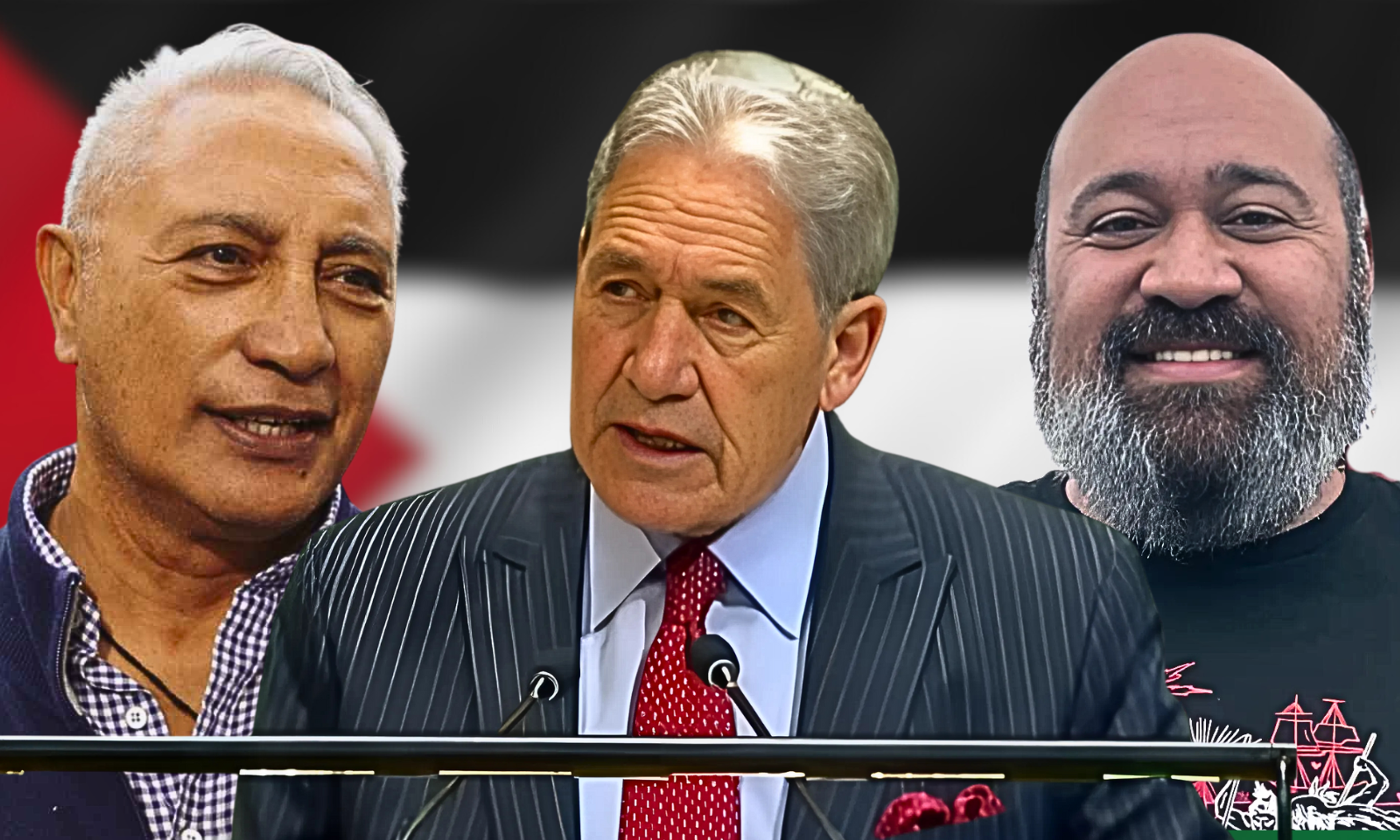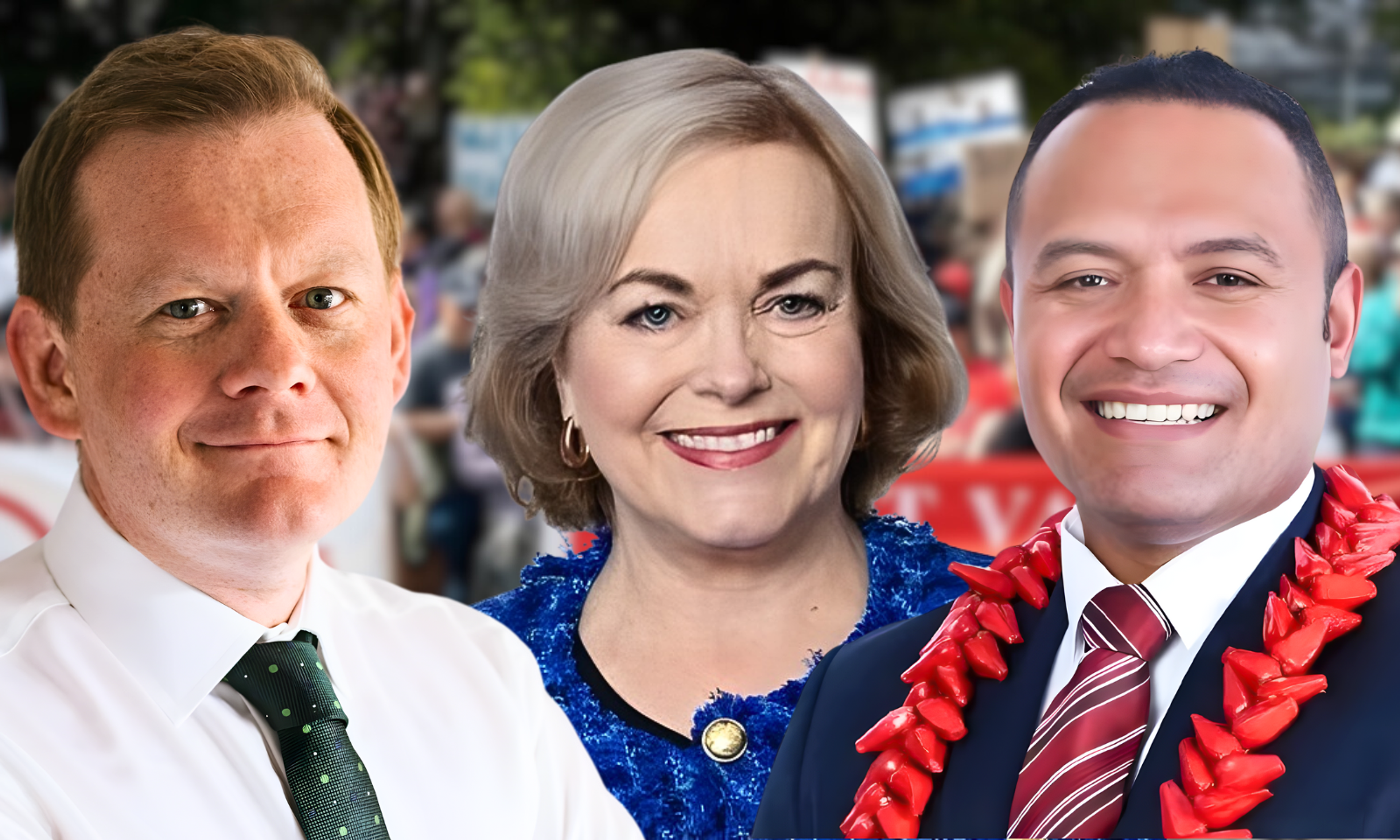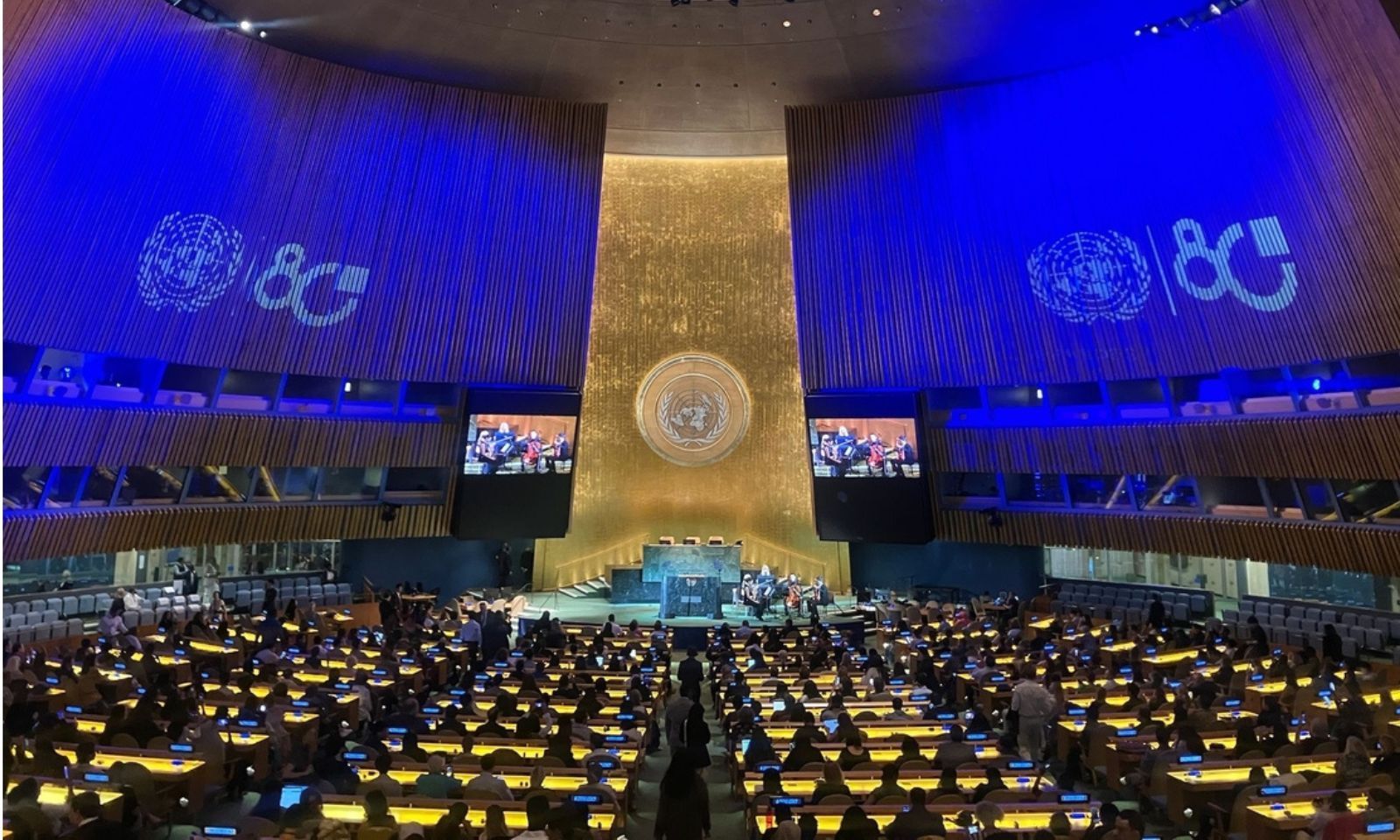

From left, Alfred Ngaro, Vaovasamanaia Winston Peters, and Michel Mulipola.
Photo/Composite/PMN/Supplied
Pacific voices divided as New Zealand rules out recognising Palestinian state
New Zealand challenges Israel and Hamas over actions prolonging the Gaza conflict; activist slams refusal to recognise Palestine as “pitiful,” while a community leader calls it the right decision.



Pacific doctor urges dialogue as 100,000 workers prepare for major strike action

NZ aims to strengthen Pacific defence ties at key ministers’ meeting

League coach Jamie Soward proud of Fetu Sāmoa’s spirit despite narrow defeat to Kiwis


Pro-independence leaders reject further election delay amid ongoing tensions

Pacific doctor urges dialogue as 100,000 workers prepare for major strike action

NZ aims to strengthen Pacific defence ties at key ministers’ meeting

League coach Jamie Soward proud of Fetu Sāmoa’s spirit despite narrow defeat to Kiwis
The Government’s refusal to recognise Palestinian statehood has drawn mixed reactions from Pacific leaders.
Pacific activist Michel Mulipola labelled the stance ‘pitiful,’ while former MP and community leader Alfred Ngaro backed it as the right call.
At the United Nations General Assembly on Saturday, Foreign Affairs Minister Vaovasamanaia Winston Peters announced that New Zealand will not recognise Palestine at this time, saying the ongoing war, Hamas’ control of Gaza and uncertainty over next steps leave too many questions unanswered.
Some of New Zealand’s closest allies have recently recognised the State of Palestine, including Australia, the United Kingdom and Canada.
Peters warns that premature recognition could complicate efforts to secure a ceasefire by hardening positions on both sides.
But activist Michel Mulipola argues that recognition would have been the least the government could have done.
Watch Winston Peters' address to the UN General Assembly below.
“Recognising the state of Palestine is pretty much the bare minimum, like low stakes for the New Zealand government to do in terms of actions. And so to see Winston and (Prime Minister) Luxon and this government not recognising the state of Palestine is pretty pitiful,” he says.
“It can be a tokenistic gesture to recognise the state of Palestine, because recognising the state won’t necessarily put an end to the genocide and the deaths happening every day. But, we couldn’t even do that,” he says.
However, Pacific community leader Alfred Ngaro supports the stance taken by the government.
“I believe it was the right decision. I feel that he (Peters) had taken time to consider what is a very complex and very difficult situation, both politically and diplomatically. But most importantly, as he had indicated, he was going to take time to speak to different key stakeholders, which I believe that he did,” Ngaro says.

The 80th Session of the UN General Assembly in New York. Photo/International Union for Conservation of Nature
He agrees with the government’s rationale that Hamas remains the de facto authority in Gaza with no clear pathway to a fully functioning Palestinian state.
Peters says New Zealand continues to call out all actions by both Israel and Hamas that prolong the conflict, prevent a political solution, and seek to extinguish the viability of a Palestinian state.
“With a war raging, Hamas remaining the de facto government of Gaza, and no clarity on next steps, too many questions remain about the future State of Palestine for it to be prudent for New Zealand to announce recognition at this time.
“We are also concerned that a focus on recognition, in the current circumstances, could complicate efforts to secure a ceasefire by pushing Israel and Hamas into even more intransigent positions,” he says.
Peters says New Zealand has long supported a two-state solution and defended Palestinians’ right to self-determination.
Watch Michel Mulipola's interview on 11 September 2025 below.
He says what is needed now is dialogue, diplomacy and leadership rather than more conflict and extremism.
Peters urges the international community to retain its focus on getting as much humanitarian assistance as possible into Gaza.
“For that reason, we are providing $10 million more to international humanitarian partners to deliver emergency supplies into Gaza.
“New Zealand repeats our call for an immediate ceasefire; unfettered access for humanitarian supplies into Gaza; all sides to adhere to international law; a two-state solution as a result of a comprehensive political settlement; and an end by Israel to all illegal settlement activity and current military action,” he says.
Watch Alfred Ngaro's interview on 23 September below.